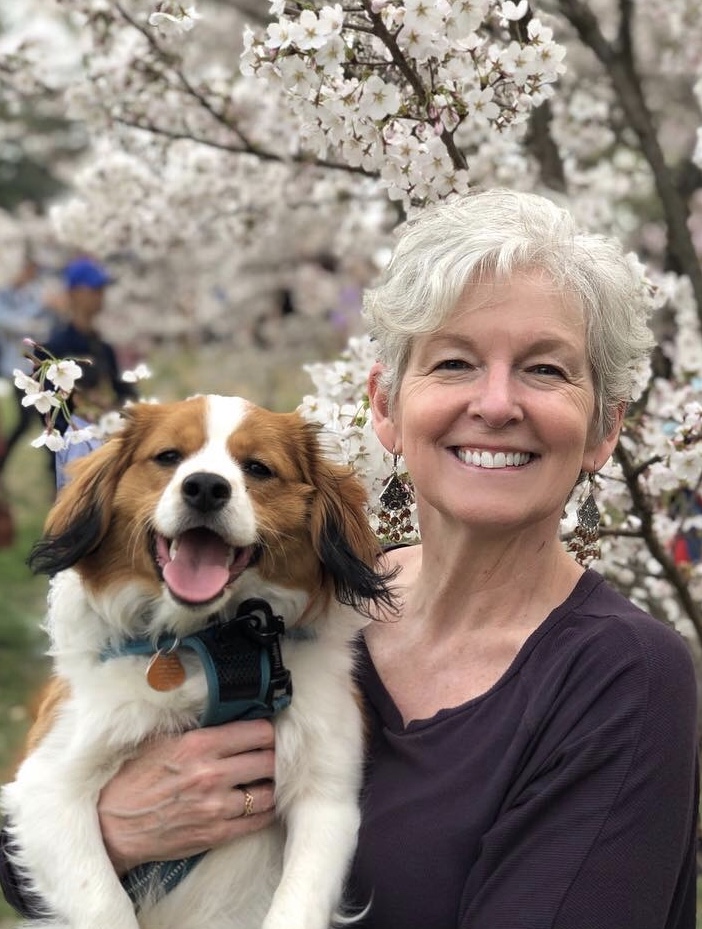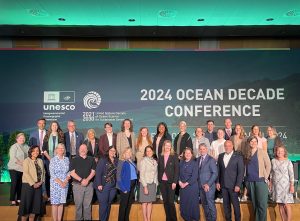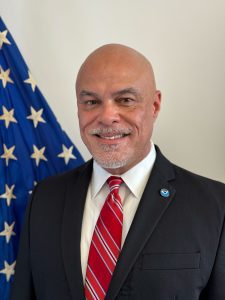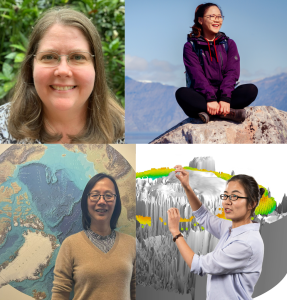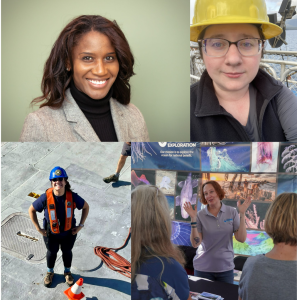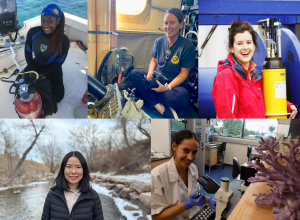Ko Barrett is NOAA Research’s Deputy Assistant Administrator for Programs and Administration. In this leadership position, Ko supervises daily operations and administration of several major NOAA research programs, including the Climate Program Office, Ocean Acidification Program, the National Sea Grant College Program and more. Ko also serves as a vice chair of the United Nations Intergovernmental Panel on Climate Change (IPCC), the international body created to review and assess the most recent scientific, technical, and socio-economic information produced worldwide that is relevant to understanding climate change. She is widely recognized as an expert on climate policy, particularly on issues related to climate impacts and strategies to help society adapt to a changing world.
How has the pandemic changed your typical work day? Have any opportunities opened up by the change to virtual-only work, or any unexpected benefits from working from home?
Like others, I am hunkered at home, working virtually while caring for my family. My children are grown and not living at home, but right before COVID-19 hit, my 29 year old daughter quit her job and built a van to travel for a few months. When everything shut down, she was on the road by herself with her cat, so I renovated my A-frame camper and spent two months traveling with her. I worked while on the road – teleworking from Glacier National Park, Moab, Yellowstone – all these stunningly beautiful national parks that were virtually empty.
I think the biggest opportunity provided by COVID-19 is finding a better balance between tending to our lives and tending to our work. For years we’ve talked about “work-life balance,” but there has not really been a balance! Now, sometimes I’m outside gardening or taking a walk while I’m on a phone call. I don’t think it’s a detriment – I sometimes feel like I can be more engaged when I have two sides of my brain working and importantly, we need to feed our souls during this time. I think leaders have to set the example that that’s OK.
What do you think the future of the NOAA workplace holds?
It’s going to be really interesting to move forward and create this “new normal.” From an environmental perspective – this is the first time in 30 years that I haven’t been on an airplane in a year! My environmental footprint has been a whole lot smaller this year, and that matters to me, working in climate.
I hope we keep a real work life balance into the future. You don’t get these kinds of opportunities often, where there’s this entire shakeup of society and you get to come back with a different perspective. A big silver lining for me is when somebody’s dog or cat comes into view , or their kid runs around in the background. It feels like that boundary between work and personal life has been opened up. I work with people all the time, and before I didn’t know who had kids, or who was a singer – all these things have come out.
I want that to continue – I want the boundaries to be more porous going forward. I think moving more purposefully into the future is going to be a stretch, because when we’re all virtual, it’s equal, but when some people are in the office and some are virtual, then we will have to be very deliberate in facilitating equal conversation and participation and inclusivity.
What role does leadership like yourself play in planning this “new normal”?
Solutions to complex questions are best served by having an inclusive conversation. We have to have everyone engaged with this! What is it that we need, and how can we look at it from every side so that as we’re putting this back together, we’re doing it in a way that considers everyone’s needs. In a sense, that lowers the bar for me – I don’t have to carry this on my shoulders. I have to open the conversation so that everybody has a chance to offer their perspective for a better solution, which is the core value of diversity and inclusion.
Tell us about your career path. How did you start out?
I used to be an apologist for my path because it’s a little wayward. But I’ve shared it enough and people have responded warmly enough that I don’t apologize for it anymore. It’s just a really crooked path. It took me 18 years to get my undergraduate degree – I got side-tracked with life experiences, then came back. I started my career super late: I was 37 when I got my first actual job, and my husband and I were living overseas. I had a degree in science, and I started doing environmental work in Ukraine. It’s just one of those crazy stories that I would never advise someone to take that path, but for me, it worked out. It gave me some really valuable life experiences. I’m a hard worker but I was also really lucky – I came back from overseas and I worked at USAID (the United States Agency for International Development)as a technical writer, right at the time when climate was taking hold. USAID was starting a climate program, and I thought, “I can do that, that sounds really interesting.”
What would you tell women early in their career who are interested in science?
I think women have to be persistent in pursuing their passion. That is a challenge because sometimes we are our own worst enemy. We question, “Am I good enough? Am I an imposter?” We lose so many girls in middle school who have an innate interest in science, and there’s peer pressure, and this social stuff that goes on – many girls end up saying “I don’t want to embarass myself, I don’t want to ask questions, I’m going to shut down my own curiosity.” So we need to help girls and women stick with their passions. Sometimes that means finding the right mentor, and sometimes that means being brave and going after it alone.
I will say one thing about my path that gives me the most important skill that I bring to leadership. I grew up in a working class family. With one or two further missteps off the path, I could be in an entirely different segment of society at this point. When you have a life that has walked you that way, you realize that every person has value. It really makes you appreciate that every person comes to the table with their experience, with their perspective, and with something that is worthwhile as you look for solutions together. I wouldn't trade that for the world.
